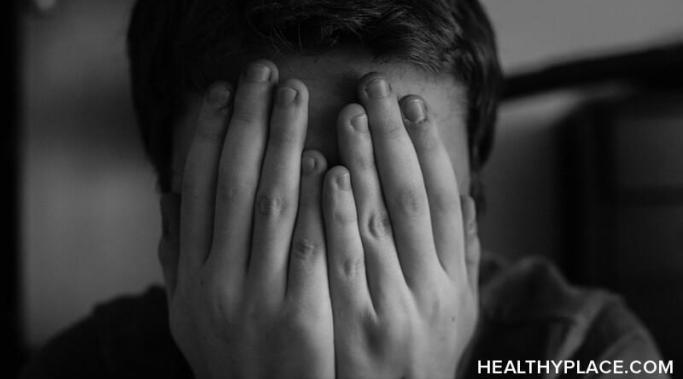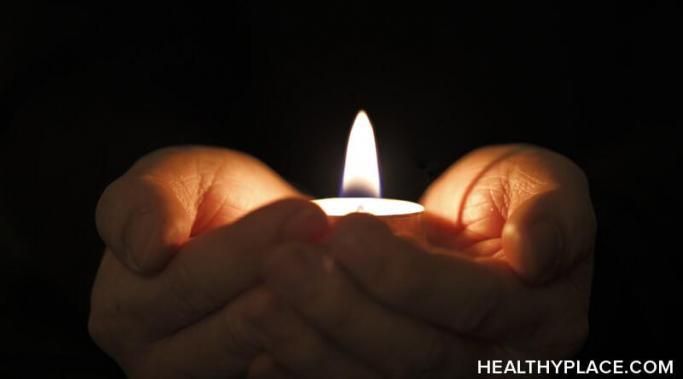Some of you may immediately be turned off by the mere thought of having depression and being thankful during the holidays, but hear me out. I'm not talking about gratitude here. Rather, I'm talking about using the word "thankful" as an acronym to remind us to practice healthy coping skills, which will allow us to better manage our depression throughout the holiday season.
Coping with Depression
Depression takes its toll on us, and our brains certainly deserve a break. While we know this to be true, how can we put this knowledge into practice?
Can you be saved from depression? Many mainstream films and TV shows about mental health push the concept of the "savior" figure. A character suffering from mental illness meets another character and, through their relationship -- often romantic in nature -- comes to find recovery and health, or at least a happy medium. While certain relationships can help enhance our personal wellbeing, we should be careful when evaluating them for signs that we are falling for the myth of the savior figure. Being saved from depression is a myth.
Comforting ourselves as we cope with depression is an important skill. While others may offer us comfort and want to help, they are often unable to truly do so. Only we understand our own needs for comfort completely, and we need to work towards being able to meet these needs. It's a process, though, so don't feel rushed.
Mental illness is never our fault, but we need to take responsibility for our mental illness. The cause of mental illness is still debated among scientific communities, with the general consensus being that it is some combination of genetics, environment, and biology. We are not at fault for the type of parenting we grew up with or our family's medical history. We are not at fault for being born into poverty or developing certain personality traits. But none of these things excuse us from taking responsibility for our mental illness.
There are many feelings of depression. Yes, there is a feeling of sadness, but there are also other feelings, too. These feelings may include numbness, anger, irritability, extreme tiredness, stress, worthlessness, and guilt. These are typical feelings for someone with depression, yet we shouldn't ignore these feelings nor wallow in them, either. So, how can we cope with these feelings of depression in a healthy way?
Discussing our depression can be beneficial; however, we should use discretion when deciding with whom we choose to discuss our depression. We also need to be mindful of how much detail we go into with people. Not everyone can be trusted with the most painful details of the lowest points of our depression.
Suicide attempts are not all the same. The people behind them are not all the same. While much is said about those who attempt suicide with sincere conviction and commitment, there is a large and mostly silent group of people whose suicide attempts were impulsive, marked by ambivalence, or a “cry for help.” (Note: This post contains a trigger warning.)
Suicide attempts are more prevalent than anyone would like. This means that there is a whole population of people out there who need a different kind of help than the one suicide prevention resources currently offer. This also means that many people may currently be finding themselves alive on the other end of a suicide attempt and wondering, “What happens after a suicide attempt?” (Note: This post contains a trigger warning.)
Having healthy coping skills and knowing how to practice them can play a major role in suicide prevention. When someone is struggling with depression and suicidal thoughts, the pain and confusion he/she feels is often compounded by misinformation, incorrect beliefs, and unhealthy coping skills. Yet, these are often the only things a person suffering from a mental health crisis has at his/her disposal. It's time to change this now by having educational conversations about mental health, suicide, and healthy coping skills. (Note: This post contains a trigger warning.)









